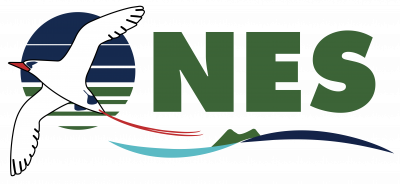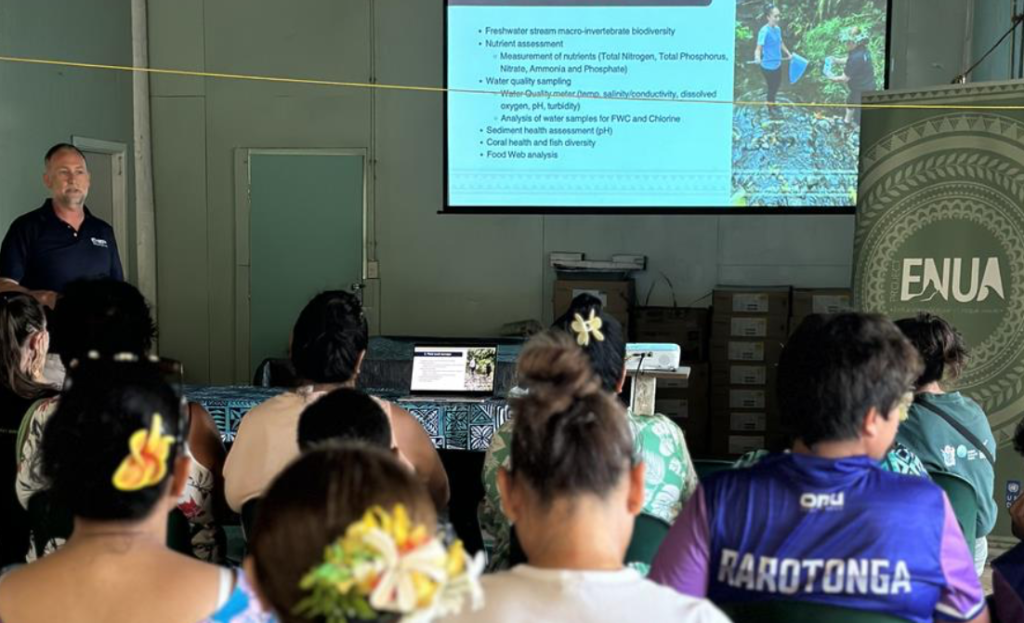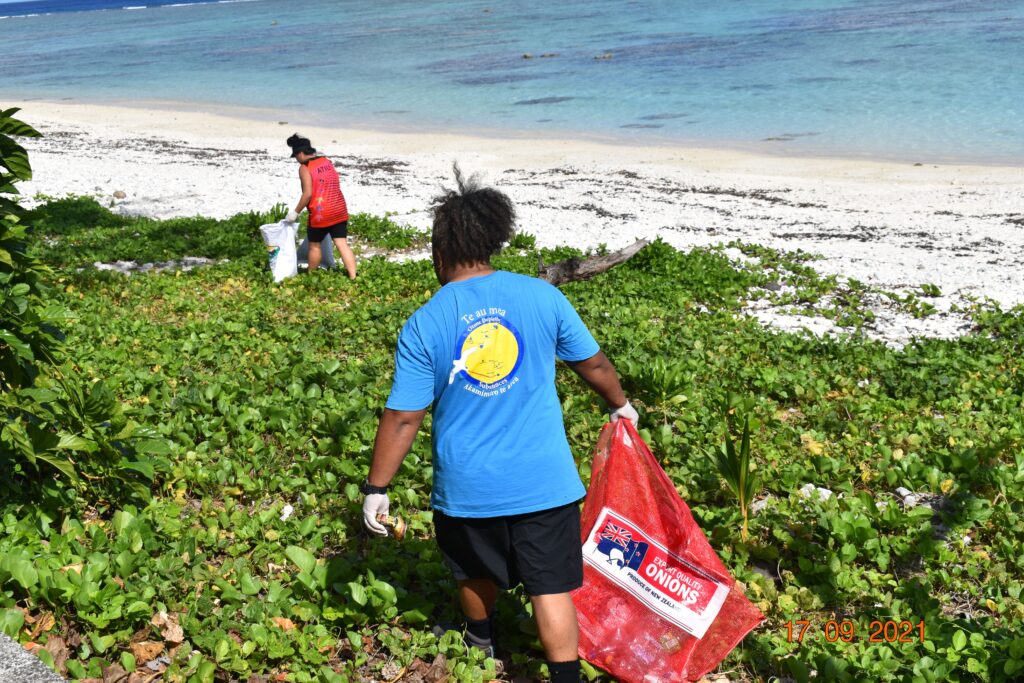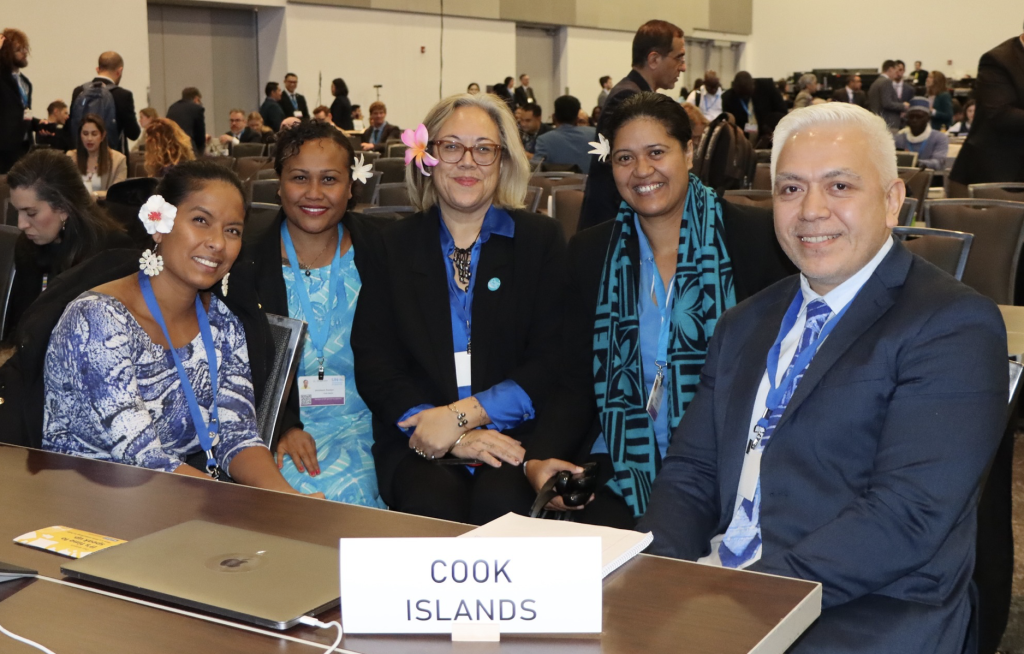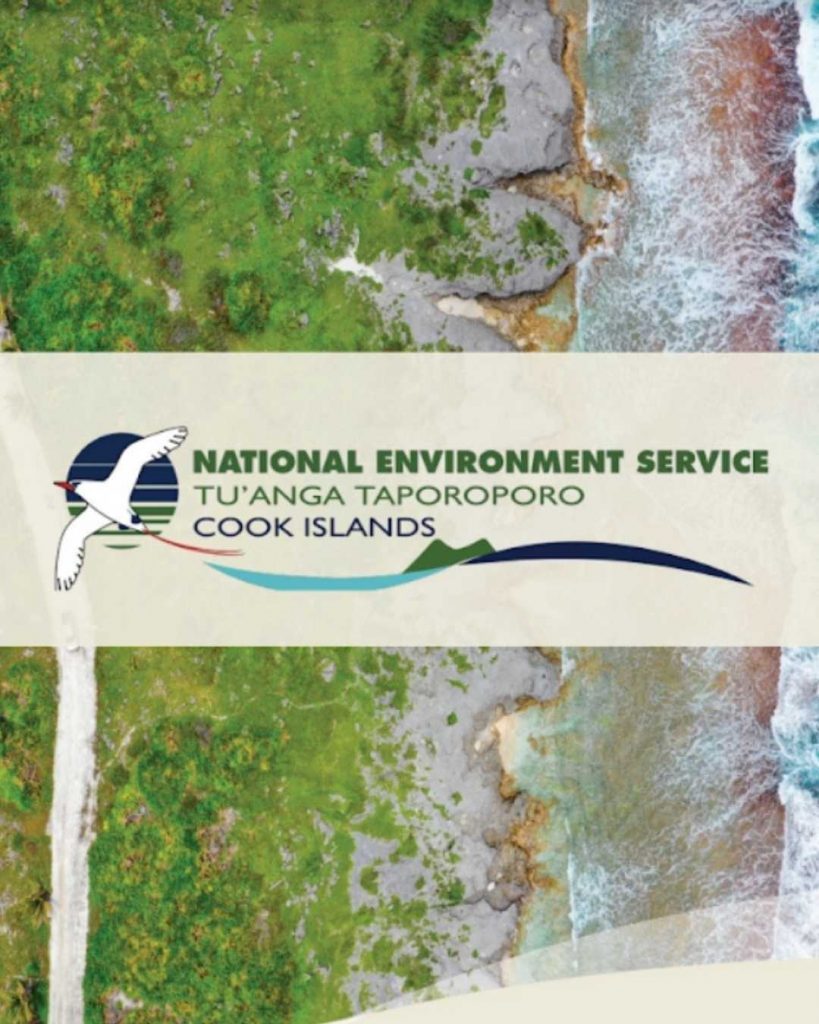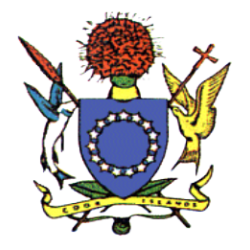The National Environment Service GEF 7 Project ENUA team was recently involved in important catchment audit assessments in partnership with the University of Newcastle (UON) from Australia. This exciting project aims to gather essential information about our environment, helping us to deepen our understanding of current conditions, establish indicators to assess trends over time and strengthen conservation efforts.
The catchment audits are focusing on four catchment areas: Avana, Turangi, Avatiu and Takuvaine, and gather a wealth of important information about our environment. The UON team has already undertaken desktop assessments based on recent LIDAR data, which includes aerial imagery and spatial data in land use, vegetation, elevation, waterways, development, soil types and infrastructure.
To supplement and ground-truth desktop analyses, the UON team joined NES on island from October 22 to November 1 conducting a variety of fieldwork surveys with NES. These examined freshwater macroinvertebrate biodiversity, water quality, nutrients and sediments, coral health and fish assessments.
These surveys are more than just numbers; they will help us create baselines and indicators for ecosystem health in our catchments. By pinpointing sources of nutrients and pollution and examining places where people live, such as urban and recreational sites, along with agricultural practices that could be impacting water quality and environmental health, we can develop effective management strategies and responses to safeguard our island’s biodiversity and monitor changes over time.
A significant goal of this project is to build local capacities, enabling local staff to participate and receive training. The UON team is eager to share their expertise, emphasizing the importance of collaboration and knowledge transfer. Coordination of research activities is also essential, which has included discussions with key local partners and stakeholders that have already conducted extensive work in these survey areas. By collaborating, we can ensure our efforts are aligned, filling data gaps and avoiding duplicating efforts.
These catchment audits are an important step in understanding and conserving our island’s unique environment. Following this, local NGO groups will be supporting NES with developing community-led management planning that identifies locally relevant responses and solutions, which will be further supported by NES through the awarding of sub-grants to help communities implement related sustainable activities in the four catchment areas.
As part of the GEF 7 Project ENUA, we’re on a mission to protect our beautiful biodiversity and ecosystems from the impacts of pollution and development. We look forward to sharing updates as the project progresses and we invite you to join us on this journey!
For more information, please contact: projectenua@cookislands.gov.ck
